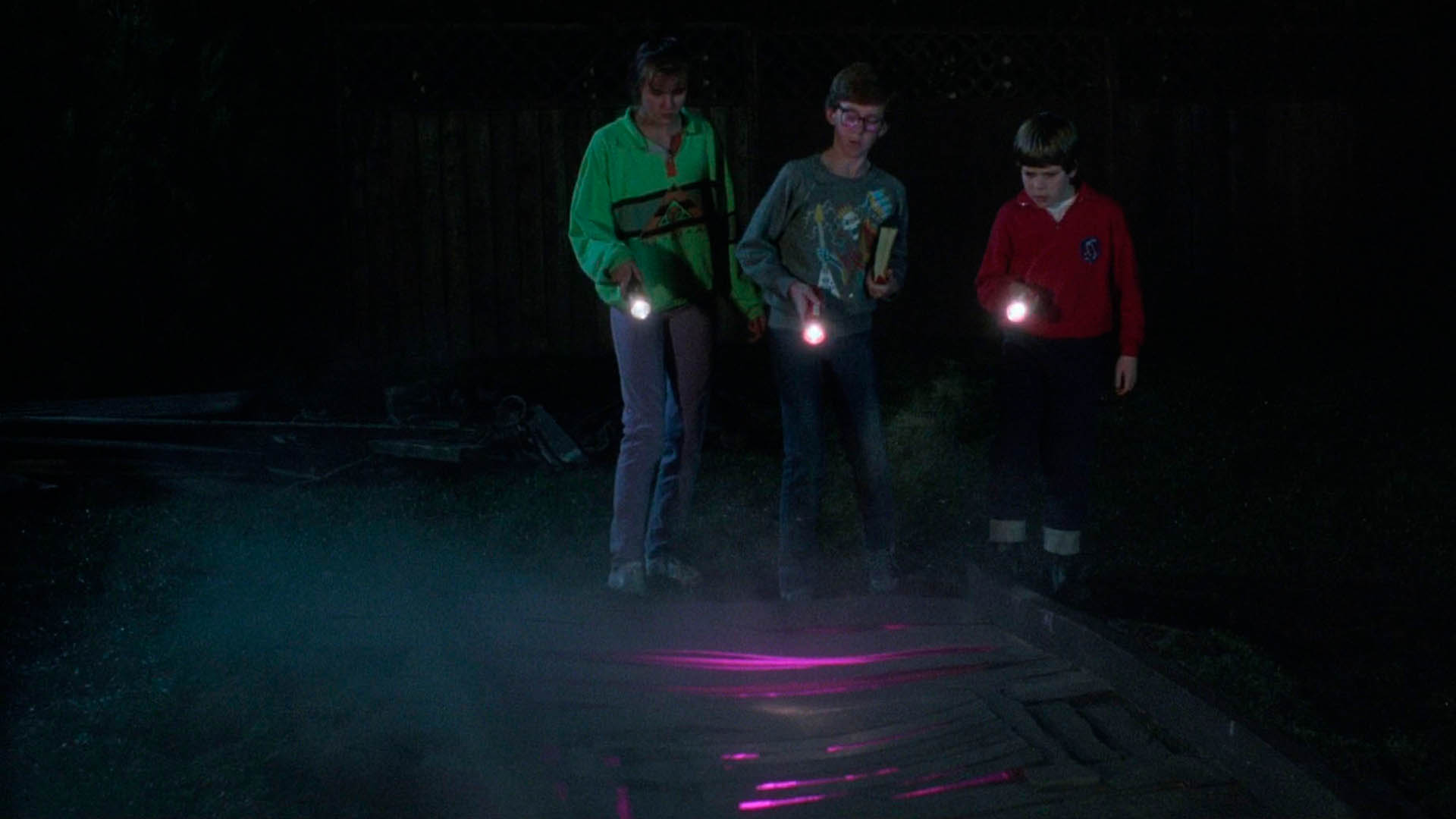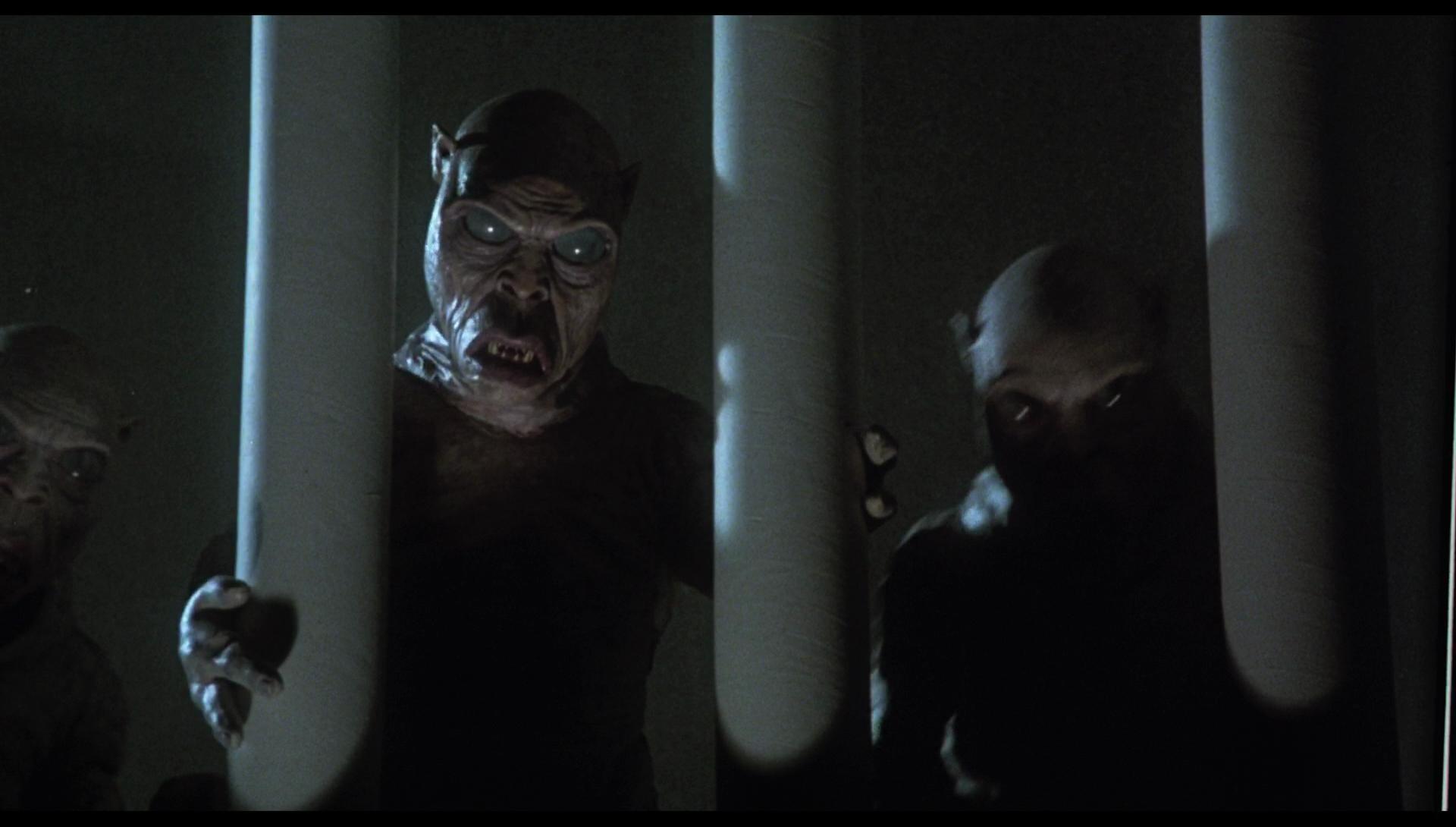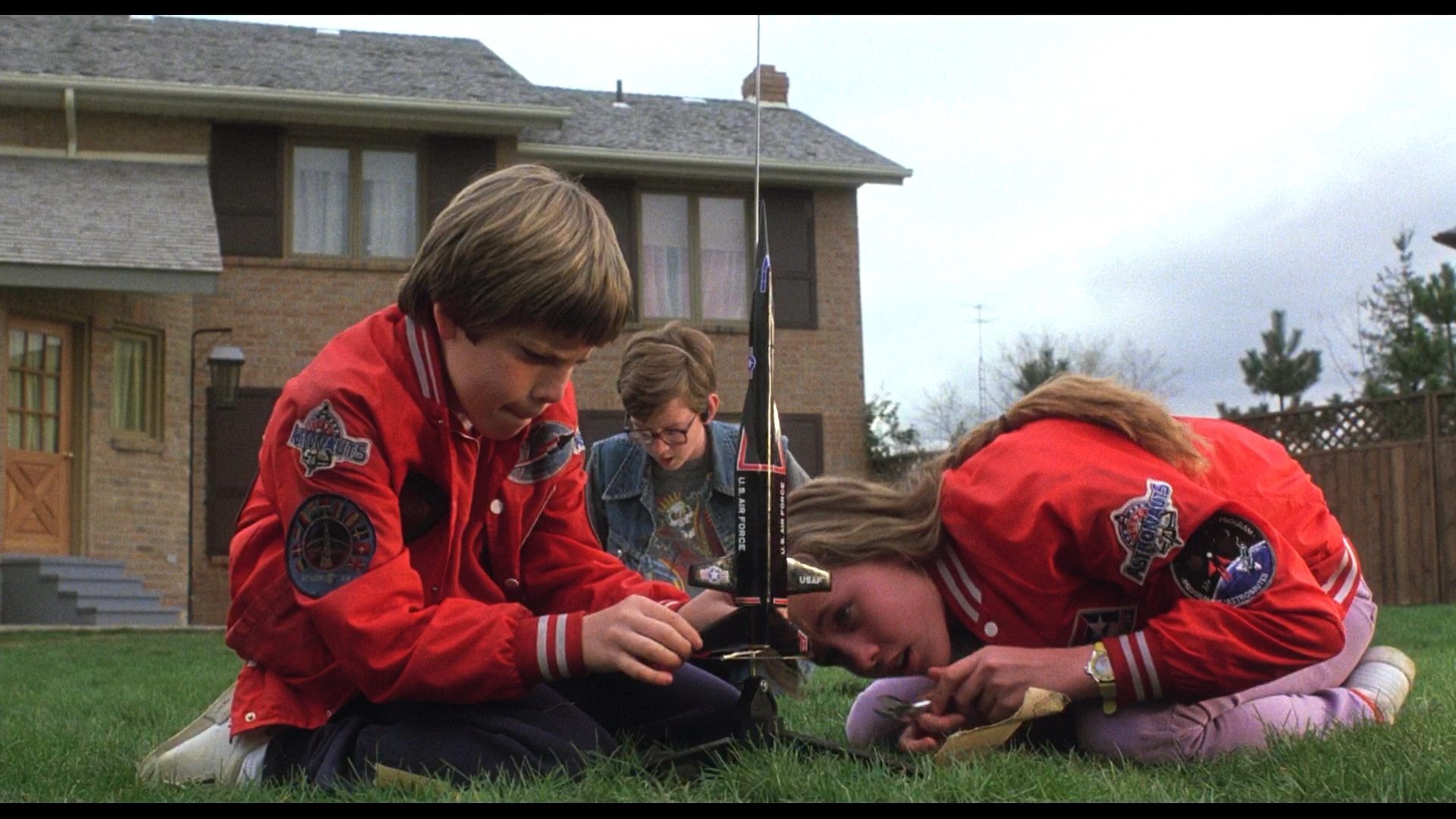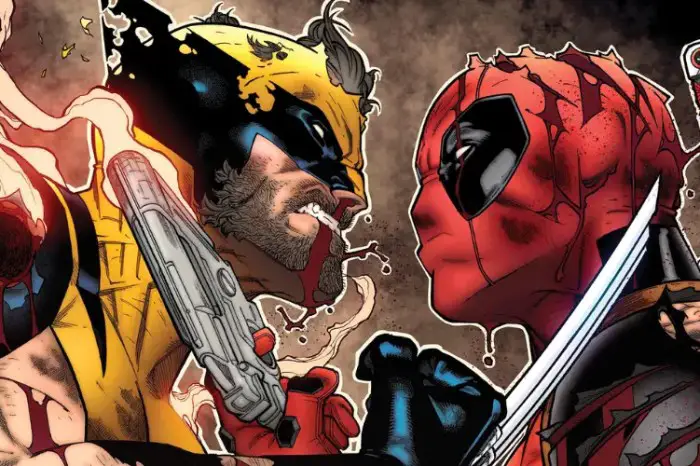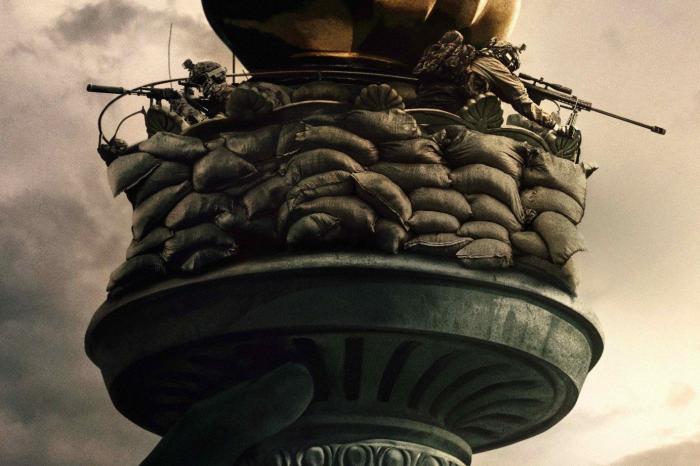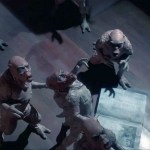Full Circle Flashback: ‘The Gate’ Review
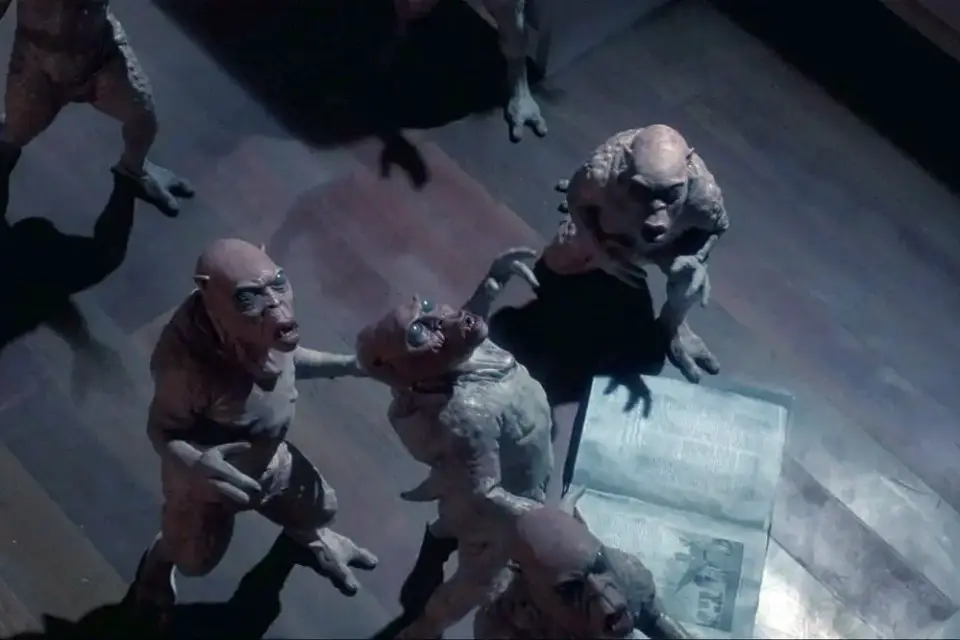
I did not grow up with The Gate. But I get the impression that I have instinctively known about it since the age of sleepover weekends. It feels universal in the sense that we have all felt that giddiness of renting videos on Friday nights and watching silly cartoons until they metamorphosed into something darker, something as obscure as The Oblongs on Adult Swim. I miss that feeling. The almost sacred ritual of keeping your eyes open until they could see sunlight again. And passing those long, sleepy hours with late-night talks and exchanges of childhood secrets and dreams that mattered so much to us then. They don’t matter so much to us now.
As a child, I used to feel that anything was possible if we stayed up long enough to see it. I really felt that the morning would never come, that at witching hour, we could come closest to the spirits that haunted our imaginations. I recall stories of ghosts patrolling the railroad tracks at dusk. And half-remembered rumors about a horrific accident that happened many, many decades ago in the woods near my childhood home. Director Tibor Takács understands these sentiments too. He recognizes that children believe anything and everything to be possible, even to the extent that they can unleash demons from their own backyards. After all, reality has not told them it isn’t so. At least not yet.
The Gate all begins with an electrifying nightmare. Twelve-year-old Glen wakes up and finds that there isn’t much that separates his fantasies from reality. A bolt of lightning really did collapse his treehouse, unearthing an ancient geode from the depths of the earth. With the help of his older friend, Terry, Glen breaks it open and all hell breaks loose. Too bad for Alexandra, the teenage sister in charge of babysitting her brother Glen while their parents are out of town. She just wanted a few days away to herself, and now she has to save the world with her brother?
READ: ‘Servant’ Season 2 Episode 8 Recap/Review: “Loveshack”
Sure, The Gate may not be the scariest horror movie experience for children. Another example of what I call horror-on-training-wheels, but that does not make it any less bold. If anything, I have so much respect for it rubbing shoulders with the taboo. Demonic horror never used to sit well with me as a little Catholic altar server for obvious reasons. Honest to God, I squeezed my eyes and ears shut after seeing and hearing Regan snarl for the first time. And yet, The Gate presents these horrors in ways that children won’t feel traumatized by with pipsqueak demons, beautifully brought to life with seamless stop motion and forced perspective effects. I like to think of them as little horrors for little people, without the patronizing undertones of other children’s movies.
In some ways, the title of this film seems apt. It genuinely feels like a gateway for all budding horror fans because of how well Takács sets the tone. On the other hand, I take issue with another children’s horror from the eighties called Little Monsters for this reason, and its faults exemplify what The Gate does so right. Little Monsters tries to balance the real-life horrors of divorce with the fantastical ones underneath a child’s bed. However, the tones of these different scenes clash, with darker subtexts revealed that accomplish nothing but reveal half-finished sketches of divorce and fantasy. In short, it goes against anything that a writer like R.L. Stine stands for because Little Monsters blurs the messy lines between reality and monster horror. And for an imaginative child, they may even believe these fantasies to be real and not make-believe.
The Gate stands at odds with this mean-spirited way of writing children’s stories. It does not present anything that children cannot handle. There is only one moment when real-life horror crosses into this story. Terry lost his mother, and yet the subject is handled with delicacy between Glen and his father. I am not saying that children should not be exposed to these sensitive subjects, they should. But I ask that special attention is given to how these subjects are expressed. Since Terry is not our protagonist, it gives audiences enough emotional distance to engage with grief in a comfortable way. These difficult emotions do not have to overwhelm us like in Little Monsters. Instead, we can simply have fun with this silly story, while still empathizing with Terry.
And it sure is a silly one. I mentioned R.L. Stine earlier in this review, and I think it makes sense to compare The Gate with the Goosebumps television series. Both share a wicked sense of wonky humor. And secondly, both have enough self-awareness to acknowledge the absurdity of their premises. I mean, Terry uses the liner notes of a heavy metal record to close a portal to hell. I cannot be the only one. Haven’t we all had that one older friend decked out in Slipknot tees convince us to listen to records backward to reach transcendental states of being? I guess children must all have a secret network for spreading rumors and stories through playgrounds all across the world. It’s all universal.
I sincerely believe that you will connect with The Gate in some small way if you open yourself up to it. And I hope this review serves as that key. Childhood. I bring it up so often, and I think that it may have occurred to me why. At best, movies can awaken our inner child. That inner child, a little older, a heck of a lot more mature, that once decided long ago that it would be better to fall asleep at the start of a sleepover than to pull an all-nighter. Midnight ticks away, the witching hour tocks away. All of that magic is lost to the sun in the sky. But just for a moment, if we allow it, that inner child can awaken and draw a curtain, so that when the sun hangs limpid in the blue, our inner worlds may bloom. – Daniel Hrncir
Rating: 10/10
The Gate is available on Digital HD and Blu-ray.
The film stars Stephen Dorff, Louis Tripp, and Christa Denton.

